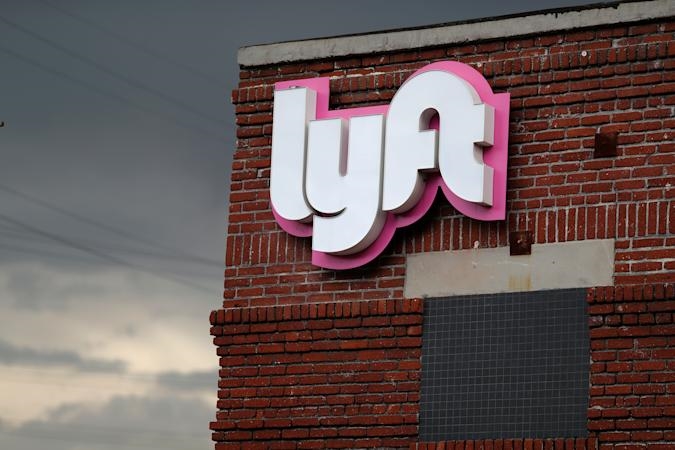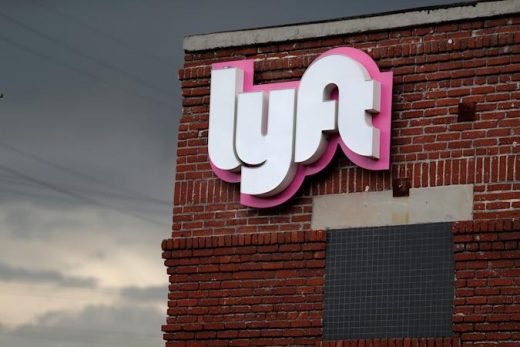Lyft is spending millions to stop Massachusetts drivers from becoming employees
Lyft is spending millions to stop Massachusetts drivers from becoming employees
It’s the largest single political donation in the state’s history.


Lyft has already splashed out $14.4 million towards a likely November ballot measure in Massachusetts which would cement its drivers as contractors, rather than employees — and the vast majority of those funds were paid in a single, $13 million donation, the largest in the state’s history by a considerable margin. It’s an unambiguous opening salvo in what will likely be a bitter and protracted battle, the playbook for which Lyft and its gig work peers successfully tested in California two years ago.
As the Boston Globe reports, Lyft has thus far contributed the lion’s share of the Flexibility and Benefits for Massachusetts Drivers committee’s $17.2 million war chest, which is intended to fund the forthcoming ballot measure. The rest comes from Uber, DoorDash and Instacart owner Maplebear. The previous record for largest single donation was nearly a third the size: a $5.1 million contribution from General Motors in 2020.
Currently Lyft and Uber are engaged in a lawsuit, filed by the Attorney General of Massachusetts, which contends that the companies have been misclassifying their driver workforce as contractors. Leveraging contractor status relieves them of many of the costs and obligations associated with employees — such as minimum wage, healthcare and overtime pay — but true contractors typically control how and when they work, and what they charge for their services. Whether or not ridershare drivers actually have that level of autonomy has become a point of legal contention in several of the states and countries in which these companies operate.
California thus far has prosecuted its defense of gig-workers-as-employees most vociferously, first through a state Supreme Court ruling in 2018, then through AB5, a successfully-passed bill that (however briefly) enshrined these kinds of drivers as employees. It went into effect on January 1, 2020 and was overturned by ballot measure Proposition 22 that November. Uber, Lyft, DoorDash, Instacart and Postmates dumped a historic $224 million into the proposition — outspending their opposition, which largely consisted of labor unions, by more than 10-to-1 — the most expensive ballot measure in California history.
Although Prop 22 was eventually ruled unconstitutional, the strategy has thus far been successful for gig work companies. Legislative changes have been tied up in court, and nowhere in the United States are Lyft or Uber drivers currently entitled to the entire slate of benefits enjoyed by full-time employees.
In making their case for Prop 22, gig companies essentially employed two lines of attack. The first, against its own workers, was a facile attempt to tie the concept of “flexibility” to contractor status, an utterly false dichotomy perpetuated by the companies themselves. The second was to convince voters in California that the costs associated with a fleet of employee drivers would either force them to scale back service or raise prices.
After Prop 22 passed, every single company that backed it raised prices anyway. Uber’s CEO also recently contended on a call with investors that, in the face of potential employee-status regulations in the European Union, Uber can, in fact, afford to “make any model work” financially. We’ve reached out to Lyft to ask if it’s in a similar position.
Given this much publicized bait-and-switch, it seems unlikely the Flexibility and Benefits for Massachusetts Drivers committee will be able to successfully argue the same case regarding cost to consumers. Still, the $17.2 million already amassed has paid for, as the Globe reports, a slew of big-name political consultancies who were behind what is currently the most expensive (and likely to soon the be the second-most expensive) ballot measure in Massachusetts history, which sought to stymie a right to repair law.
Update 1/19/21 2:09pm ET: Reached for comment, a representative for Flexibility and Benefits for Massachusetts Drivers told Engadget that, “this is just the beginning of our effort. All of the Coalition members have committed to providing significant resources to achieve our shared goal of protecting drivers’ ability to remain independent contractors while accessing historic new benefits.” Lyft decline to comment individually.
Are you a gig work driver or courier working in Massachusetts? Download Signal messenger for iOS or Android and text me confidentially at 646 983 9846 and let’s keep in touch.
(46)


